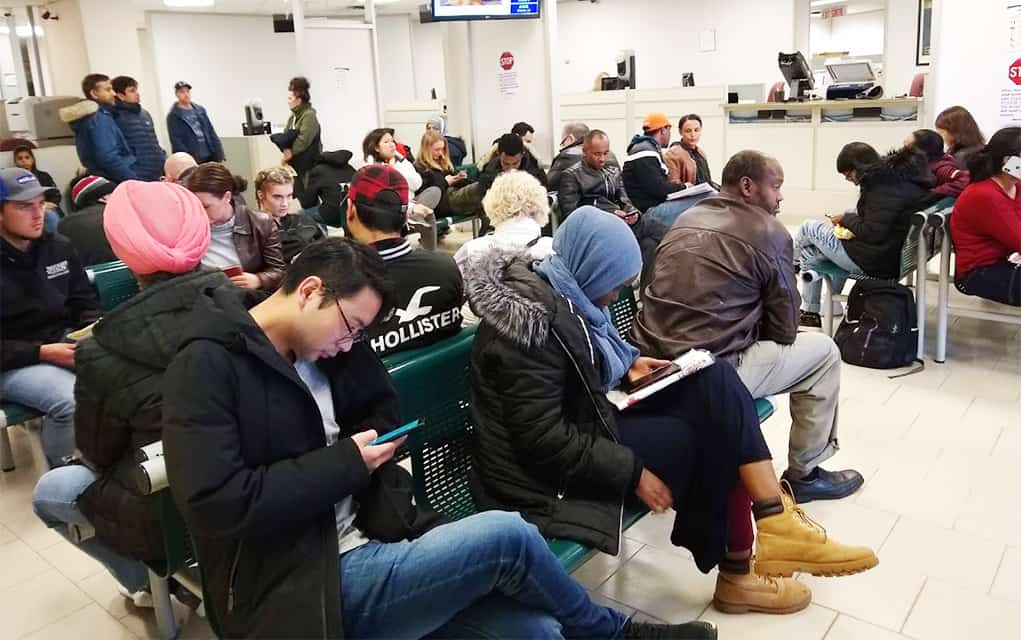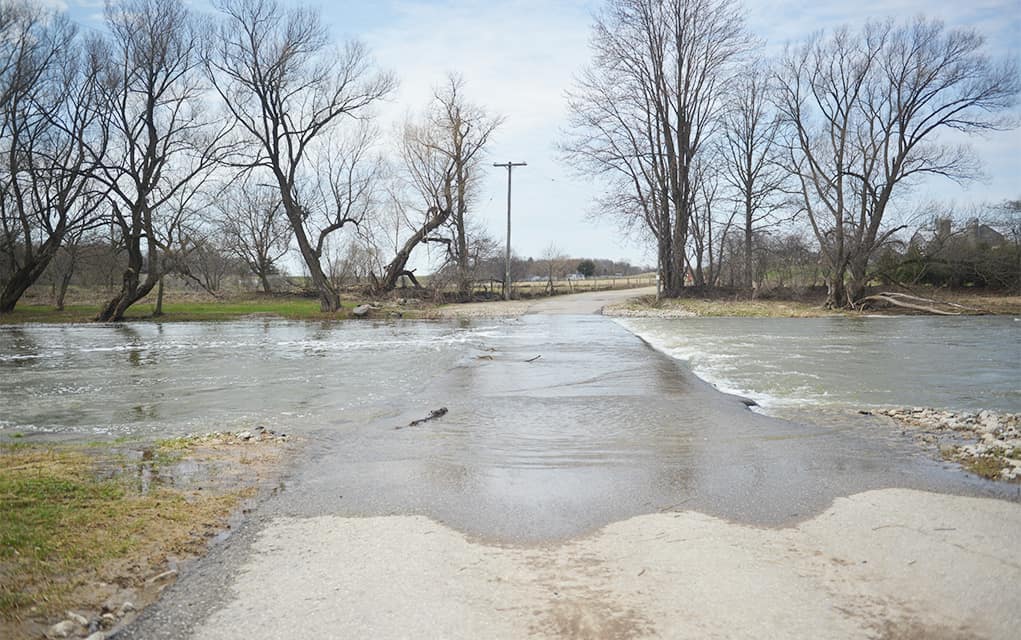Getting your driver’s license exam at the local DriveTest this weekend, and you’d be well advised to bring along a book – or maybe more than one – to help cope with the wait. The region’s lone DriveTest facility, a privately run centre that provides government services, including G1 and G2 examinations, consistently failed to meet its daily requirements for timely service, a freedom of information request has found.
Data obtained from the Ministry of Transportation showed that in 2017, the Kitchener DriveTest missed its target for wait-times on 239 days out of a total of 252 working days – a failure rate of 94 per cent. That was considerably worse than the two nearest DriveTest centres in Guelph (137 days) and Stratford (71).

“This is terrible,” said Mike Green, who had come with his wife early last Saturday to take a G1 knowledge test. The test itself took under 15 minutes to complete on a computer, but the couple were stuck at the centre for almost five hours.
“It seems really disorganized,” he said, expressing frustration at the situation.
Wait-times – or the time spent waiting in line to receive service – are meant to exceed no more than 20 minutes for 90 per cent of customers on any given day.
In practice, they seemed to range considerably for G1 examinations at the Kitchener centre. On an average Saturday, customers interviewed noted they could spend as little as half-an-hour on the entire process, from waiting in line to completing the test (which has no set time limit) to receiving their license, while several said they spent between 45 minutes to an hour for the same.
For Green, who came on the Saturday after Good Friday with his wife, the wait was five hours long.
The couple came in at 9:30 a.m., and might have expected a longer-than-average wait because of the long weekend; they certainly could not have anticipated still sitting in the cramped office past 2 p.m.
It took two-and-a-half hours of waiting just to write the test at one of the several computer stations at the DriveTest, and then another two to three hours to wait for the results of the multiple-choice test, said Green.
Rich Girard, another customer at the DriveTest, had come in with his son for a G1 examination. They had been waiting for three hours, he said, before his son was called in to take the test. Girard described the experience “awful”, and besides the long wait time, criticized the test’s price ($160), as well as the cleanliness of centre.
Two others spoken to on April 20 raised similar points, including the state of the facility’s washrooms. Interviewees noted staff were courteous and helpful, however, but were largely of the opinion that more staff, and more space, was needed.
The Kitchener DriveTest first opened its doors on Ottawa Street in 2000, and has for the past 19 years provided service to the region’s ever growing population. Asked how the DriveTest had changed to meet the increased needs of its population and redress wait-times, a Ministry of Transportation spokesperson pointed to longer operating hours instituted in December 2017, and upcoming renovations to the location.
“On the Victoria Day weekend, the Kitchener DriveTest Centre is undergoing a complete office renovation to improve the customer waiting area with increased seating capacity, to shorten wait times by adding two additional front counters … and increase knowledge test room capacity,” said spokesperson Bob Nichols in an email.
While drivers’ examinations are typically the purview of the province, the Ministry of Transportation licenses out the service exclusively to a global service delivery company, Serco, which pays the government for the privilege. The company boasts a speciality in providing services to governments, with a diverse portfolio ranging from defense contracts to rail transit management, communications and healthcare.
By the end of its contract, the company is expected to pay $207 million to the province “to collect fees, operate and manage the DriveTest Centres across Ontario,” said Nichols.
Serco is given exclusive right to offer certain key services to Ontarians. But as part of its agreement with the government, the company must satisfy certain service requirements, or key performance indicators, with wait-times being among those obligations.
Failure to meet the key performance indicator incurs a monetary penalty on the company “for each business day where the 20 min wait time has been exceeded,” though the amounts levied to the private company have been kept confidential by the ministry.
The province would not reveal the penalty values, nor how much it had charged Serco in 2017 for its 239 wait-time performance failures, saying the information had to obtained through another freedom of information request.
Asked about the excessively long wait-times on April 20, the spokesperson noted a technical issue the previous business day (April 18), resulted in some 35 additional people being forced to return on Saturday. The people were granted priority pass tickets, and most returned on Saturday, adding to the already heavy demand on April 20.









